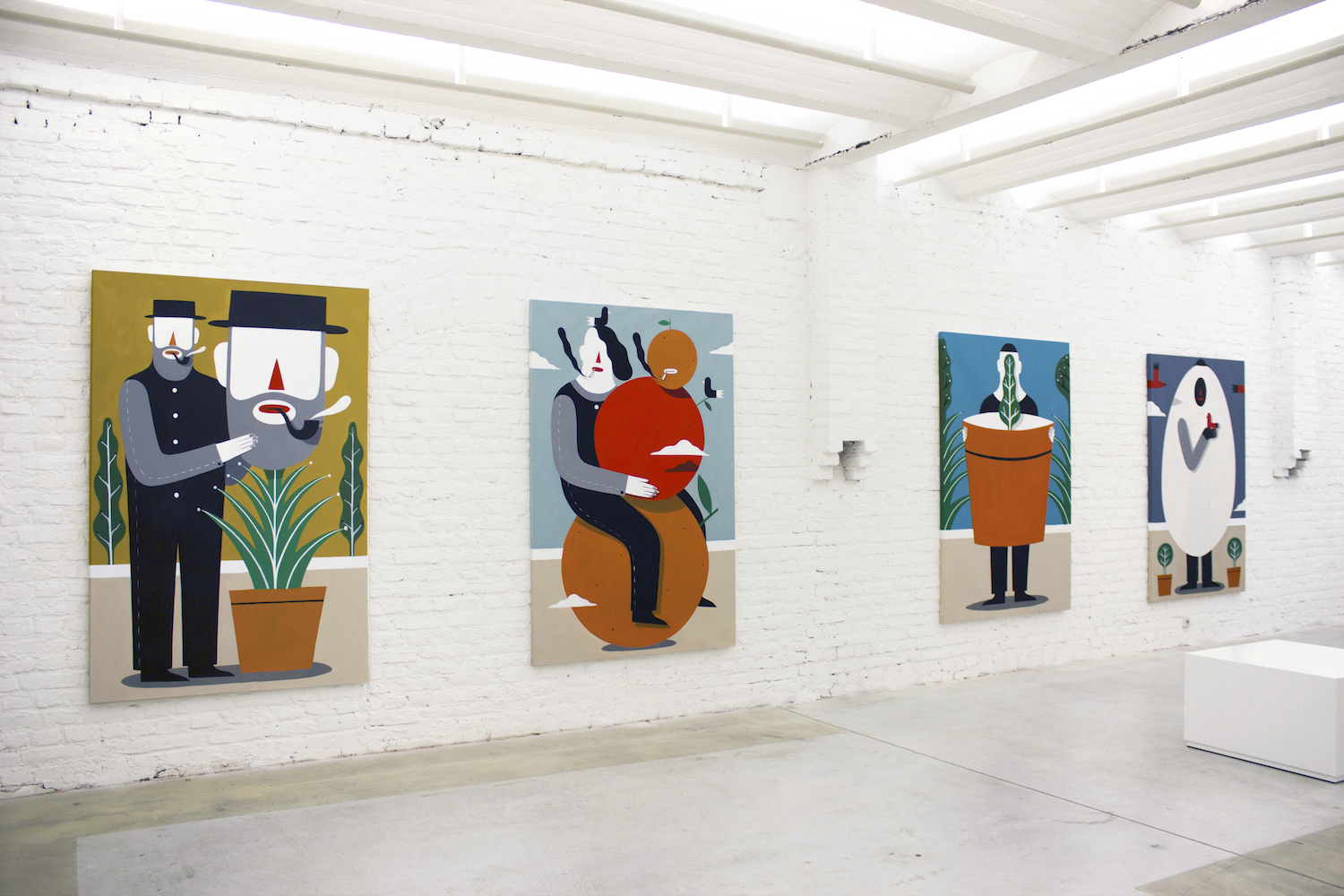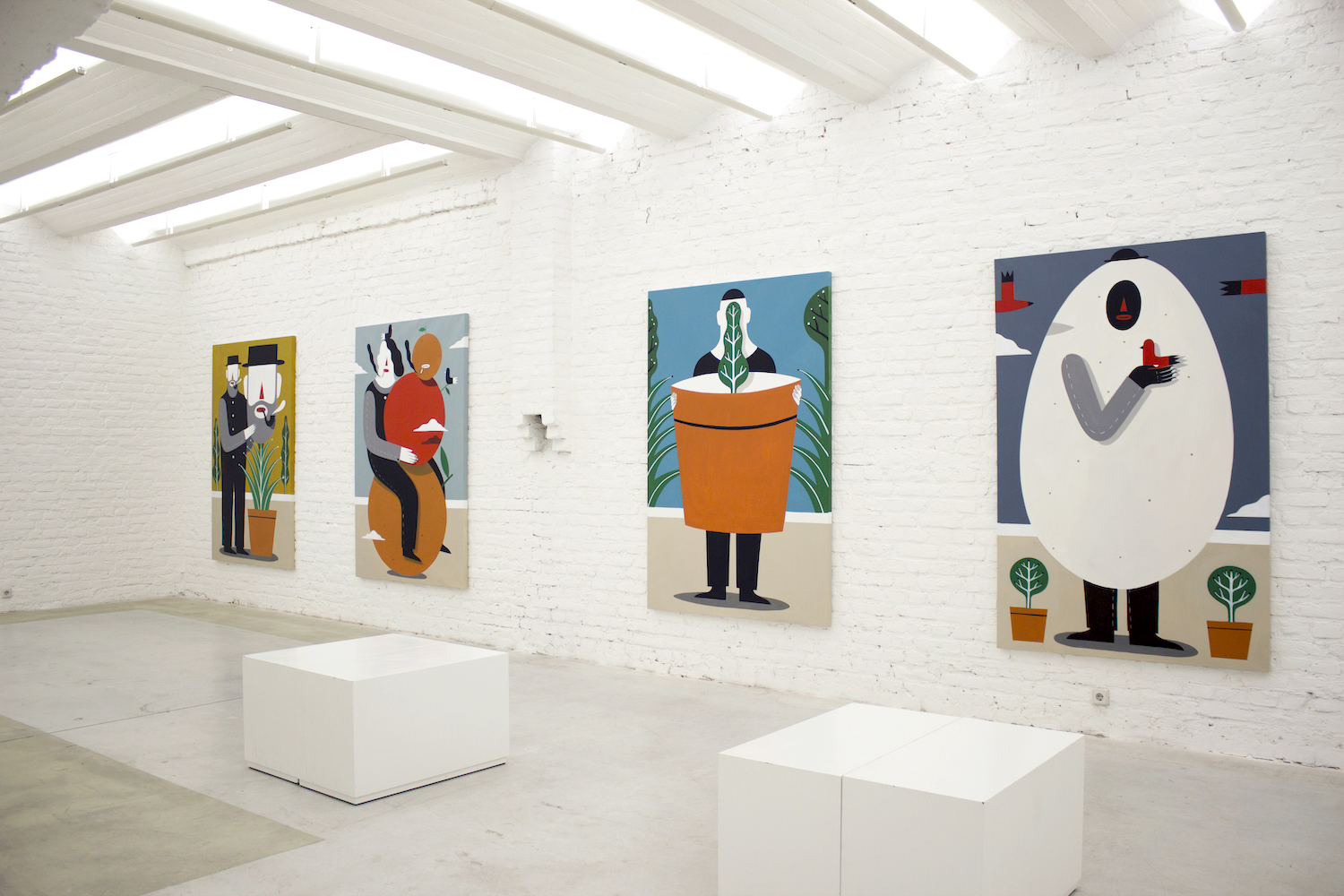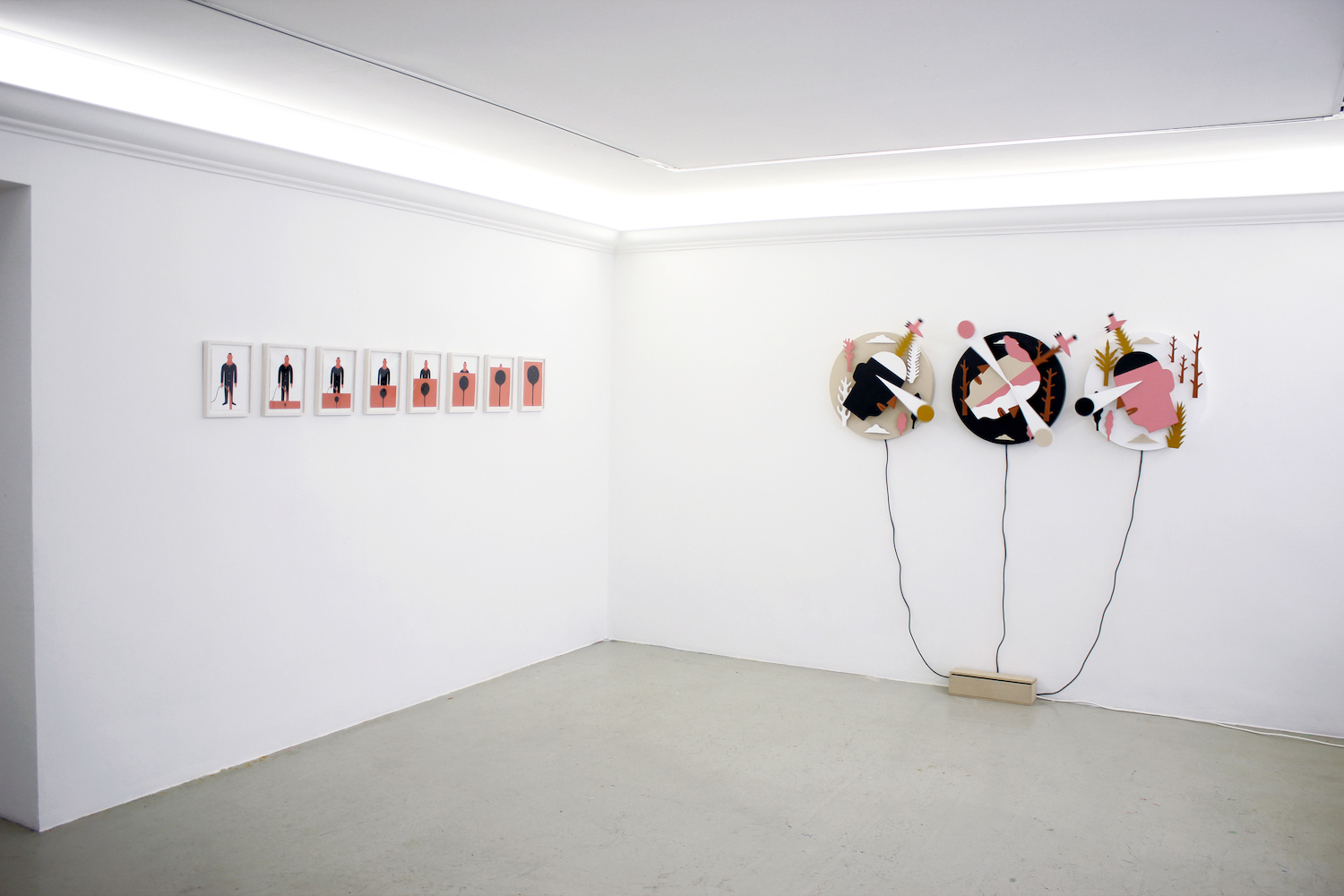Long story short
Die Kunstagentin, Cologne, 2016
Text by Vittorio Parisi
Your gaze is suddenly captured by the colorful image of a plant sitting on a chair, wearing a hat and with a pair of boots lying on the floor, right in front of the chair’s legs. How could such a scene not seduce a watchful observer? It looks at once weird and playful, and one cannot help but ask themselves some questions: is it just a funny composition, an artist’s divertissement? Or did the plant take over someone who was sitting on that chair? What if it was the result of a metamorphosis? One of those old-fashioned metamorphoses in which a man or a woman turn themselves into vegetables? It is a fascinating hypothesis, so let’s buy into it for a while.
One of the most popular examples of human-vegetable metamorphoses is featured in the myth of Narcissus, whose body turns into the namesake flower after his death. As narrated by Ovid, Narcissus fell in love with his own reflection in a pool of water, and drowned in the attempt to catch it. Western civilization has perhaps interiorized this myth more than any other else: we have shaped the concept of “narcissism” in order to point out the risks connected to our excessive self-love, then used it as a means of self-interpretation and criticism through philosophy, psychology, literature and – of course – art.
Agostino Iacurci reunited this corpus of artworks under a specific reflection, which constitutes the fil rouge of his exhibition. Such a reflection aims to that particular form of narcissism that is creativity. “I think creativity today’s main ideology”, says Agostino. And I think he is right: in a time where everyone is pushed to “be creative” in order to gain social recognition, who would ever question creativity as a positive value? Nonetheless, we cannot limit our understanding of creativity to the only act of “making art”: actions like drawing, writing or composing music are just one side of the medal, and creativity as a human faculty involves many other spheres, including science and technology. For instance, in the name of science, knowledge and progress, humans have exploited nature and transformed it with very little concern for ecological or social consequences. In this sense, creativity acts as pure narcissism, and its concept gets closer to what Friedrich Nietzsche called the will to power (“Wille zur Macht”), or to Martin Heidegger’s critique of technocracy.
Behind the joyful appearance of the artworks presented in Long story short, hides a wise consciousness of what creativity really is: a means to reach beauty and knowledge, but which also has limits and risks. And Agostino Iacurci’s art is particularly fit to accomplish the task he gave himself: way before his new series dedicated to plants, he accustomed us to images playing with opposites, where the human element – like a chair or a musical instrument, if not humans themselves – is constantly associated with, or surrounded by natural ones: plants, flowers, trees, birds, clouds, and so on. The apparent tranquility pervading his symmetric, peaceful atmospheres, where motion is at once implied but arrested, looks more like the moment in which a perfect, delicate balance is about to be broken.
The title itself – a common idiomatic expression, usually employed when we are about to make a concise account of something we know or witnessed – is here used in an unconventional, ambivalent manner. This same succession of words can quickly render the idea of how our inflated self-perception is belittled by the sudden awareness that, sub specie aeternitatis, Earth and history aren’t but an infinitesimal portion of time and space.
Nevertheless, what looks like a cynical point of view eventually leads, in the mind and work of the artist, to a positive turn: once this consciousness acquired, we can start thinking again our actual role in history and on Earth, together with our responsibility towards nature and society. Once again, art is that place where this thinking can reveal itself at its best.
















